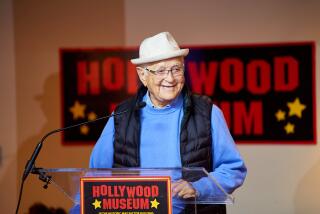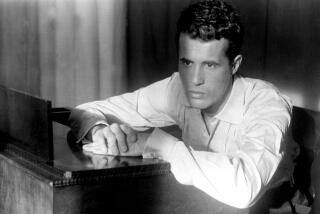Orson Welles
- Share via
A genius of radio, film and theater, Orson Welles, is dead. There was, as with so many innovators, a meteoric quality to his career, but the dazzling energy survives, illuminating the arts in which he engaged.
His extraordinary originality set him apart.
The 1938 radio production, “The War of the Worlds,” brought to the emerging medium a stark realism that, 47 years later, still influences every serious practitioner.
His 1940 film production, “Citizen Kane,” remains in the judgment of many critics the greatest film ever made, its highest accolade the utilization of his innovations in two generations of films that followed.
He was also the man who adapted “Julius Caesar” in contemporary attire to the era of European fascism, who produced a black “Macbeth,” who acted, wrote, directed, produced-- astride screen and stage, sometimes shocking, never neutral, always influential.
There were critics who dismissed him. Walter Kerr once wrote in the New York Herald Tribune that he lacked talent and was the “youngest has-been” in the world. But that had more to do with an ill-fated production of “King Lear,” in which an injury forced Welles to appear in a wheelchair, than with a fair assessment of his career.
The more accurate appraisal of who he was and what he achieved is written in the 1975 Lifetime Achievement Award of the American Film Institute and the 1984 D.W. Griffith Award, the highest honor of the Directors Guild of America.
More to Read
Only good movies
Get the Indie Focus newsletter, Mark Olsen's weekly guide to the world of cinema.
You may occasionally receive promotional content from the Los Angeles Times.






